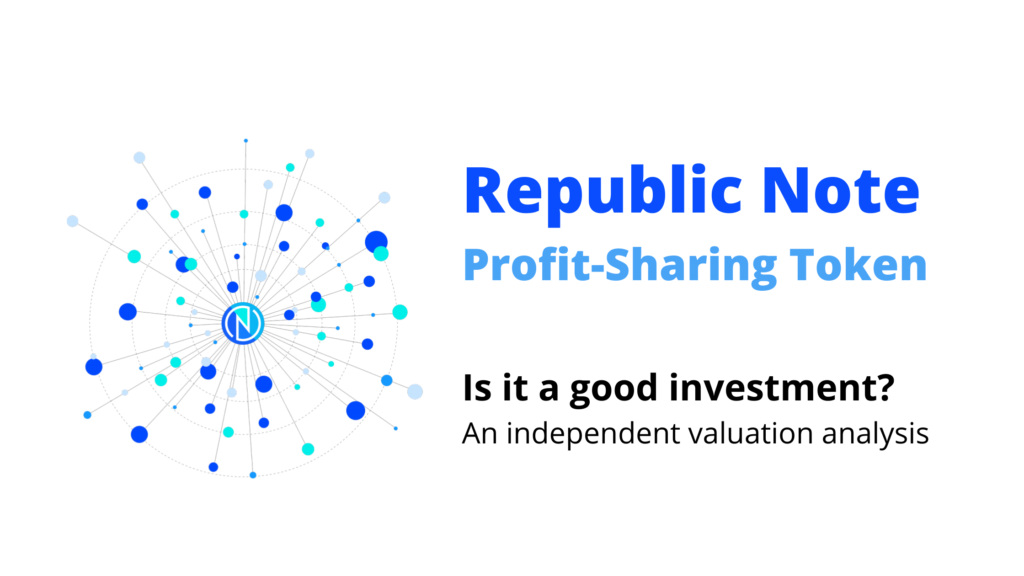Overview of SEC’s Proposed Updates to Reg CF and Exempt Offering Framework

UPDATE 11/2/2020 – the SEC has adopted the proposed rule and updates to Reg CF. Read our summary of the SEC’s final regulatory changes here.
It’s been a busy few months over at the U.S. Securities and Exchange Commission (SEC). After proposing updates to the accredited investor definition in 2019, on March 4, 2020 the SEC issued a press release outlining its proposal to harmonize, simplify, and improve the exempt offering framework.
The SEC has proposed some major changes to Regulation Crowdfunding (Reg CF) that would impact both investors and issuers.
At a high level, the SEC’s proposed changes to Reg CF would:
- Increase the offering limit from $1.07 million to $5 million
- Amend investment limits for Reg CF investors
- Remove the investment limit on accredited investors
- Revise the investment limit calculation for non-accredited investors by allowing them to rely on the greater of either net worth or income
- Allow the use of certain special purpose vehicles (SPVs), called “crowdfunding vehicles”
- Limit the types of securities that may be offered and sold (most notably no longer allowing SAFEs, SAFTs, or certain revenue share agreements, among other types
- “Test-the-Waters” and “Demo Day” Communications – permit Reg CF issuers to “test-the-waters” prior to filing an offering document, similar to Regulation A
We will analyze each of these proposed Reg CF changes in more detail and discuss the potential impact that each may have on both investors and issuers.
Note: the proposal also includes updates planned for Reg A+ and Reg D offerings, as outlined in the SEC’s press release. The proposed rule will be open for comments for 60 days after publication in the federal register.
Increase the Reg CF Offering Limit from $1.07M to $5M
One of the biggest proposed changes is that the 12-month offering limit for issuers will be increased from the current $1.07 million to $5 million.
Anticipated outcome: attract more issuers (i.e. businesses looking to raise capital) to use Reg CF as a means of capital formation, resulting in increased deal flow for investors.
While just under 30 issuers raised the maximum of $1.07M as of December 2019, intermediaries commented that many issuers chose not to use Reg CF because the limit was too low for the required effort. Now that the limit has been raised, the hope is that this will increase deal flow for investors by attracting more issuers, and issuers will be able to reap the benefits of raising more capital without much more effort.
Amend Investment Limits for Reg CF Investors
The current 12-month investor limits under Reg CF puts a cap on all investors, both accredited and non-accredited. That calculation uses the lesser of net worth and annual income as part of the calculation.
The proposed update would remove the limit for accredited investors and use the greater of net worth and income for non-accredited investors.
Anticipated outcome: increase access to capital for startups by allowing both accredited and non-accredited investors to invest more in Reg CF.
This was an often-criticized part of Reg CF, since accredited investors are supposed to be able to fend for themselves in the private markets and assess risk, as they already do under Reg D (where there are no limits). Furthermore, if a non-accredited investor has a very high net worth but low annual income (or vice versa), they may be restricted from investing a reasonable amount compared to their means because of the old “lesser of” clause.
Allow the use of certain Special Purpose Vehicles (SPVs) under Reg CF
Another criticism of the current regulations is that they deter businesses from raising under Reg CF because of the so-called 12(g) problem and the potential burden of having hundreds or thousands of investors to manage. This may cause issuers to institute higher minimum investments than they otherwise would (to avoid breaching the 500 non-accredited investor limit), use SAFEs instead of equity, or even shy away from using Reg CF altogether.
This is because Reg CF requires each investor to invest directly in the company, and so the companies fear a “messy cap table” and burdensome investor management process.
The proposed updates would allow the use of certain Special Purpose Vehicles (SPVs), called “crowdfunding vehicles” under the proposed rule, that would allow a single point of communication and streamlined management of the cap table compared to how Reg CF companies operate today.
Anticipated outcome: attract more issuers to Reg CF by removing the concern that many issuers have of becoming a reporting company under Section 12(g) and alleviate “messy cap table” concerns that may jeopardize future financings.
The proposal to allow the use of SPVs is not as cut-and-dry as some of the other proposed changes, though. While the use of SPVs may alleviate 12(g) and other concerns, it does add a layer of complexity to each offering and a potential increase in costs for the issuer. For example, the SPV entity and the issuer will have to file a side-by-side Form C filing. Furthermore, who will administer the SPV and how will they be compensated? Will the potential SPV costs offset the current costs of managing hundreds of direct investors? Will the SPV encourage issuers to offer voting or other rights more often than they do now?
Another concern we have is for investors. Assuming these crowdfunding vehicles are structured as LLCs, and those LLCs report taxes to partners via a Schedule K-1, then this could potentially mean that each investor will get a separate Schedule K-1 come tax time for every startup investment. This may not be a huge issue for traditional angel investors who invest large checks in 10-20 companies, but will it become an issue for crowdfunding investors who are trying to invest in 25-50 startups each year?
Limit the Types of Securities that may be Offered and Sold Under Reg CF
Lastly, under Reg CF today there is no limitation as to the types of securities that can be offered and sold (unlike Reg A+, where there are restrictions on types of securities).
The proposed changes would restrict the types of securities under Reg CF to be limited to:
- Equity securities
- Debt securities
- Debt securities convertible or exchangeable into equity securities, including guarantees of such securities
In short, this would prohibit several types of securities that are offered today under Reg CF such as:
- Simple Agreement for Future Equity (SAFE)
- Simple Agreement for Future Tokens (SAFT)
- Certain revenue sharing agreements
Anticipated outcome: prohibit novel and/or complex securities offerings, such as SAFEs or revenue-share agreements, to simplify the offering types and make offering types more uniform with Reg A+. The Commission’s desire is to make it easier for investors to analyze and compare offerings, and believes that the proposed use of SPVs may further reduce the demand for securities such as SAFEs.
The Commission cites increased investor protection and the streamlining of offering types between Reg CF and Reg A+ as reasons for the proposed change.
However, consider that nearly all of the Reg CF offerings on Republic today are Crowd SAFEs and a large number of those offered on WeFunder are as well. This would imply some major changes by the funding portals.
This could result in an increase in the cost of capital for some issuers. It could even deter a number of issuers to forego Reg CF altogether for a form of capital formation that doesn’t restrict security types.
It could also make the comparison of offerings easier for investors, potentially attracting more investors into the market, and thus bolstering the available capital under Reg CF.
This is another change that is very hard to predict what the final result may be.
Submit your Comments to the SEC
As with other proposals, the SEC strongly encourages everyone – both investors and issuers – to submit comments regarding the proposed changes.
The comment period will be open for 60 days after it hits the federal register, so likely sometime later in May 2020.
Also, be sure to read the complete proposal for more details on the Reg CF changes, as well as details on the proposed changes under Reg A+ and Reg D.






[…] Crowd SAFE notes came about as a legal way to enable non-accredited investors to own a piece of whatever crowdfunding opportunity they were supporting*. This goes beyond simply providing money, and enables conversion of the Crowd SAFE into stock or cash in the future, giving the opportunity for easy future liquidation. Additionally, CROWD SAFE enables companies at an early stage (pre-seed, seed, Series A) to raise funds in place of traditional VC, or in complement to it. CROWD SAFEs differ from a SAFE because the valuation of the company does not include equity raised during the fundraising round. The Crowd SAFE uses the same components of the SAFE discussed above, and is similarly illiquid. The value of a Crowd SAFE does change based on triggering events like an IPO, or an acquisition of a startup by another company. Like SAFEs, there is no guaranteed return on investment and the investment can lose all of its value. Some CROWD SAFEs have terms which are unfavorable to investors, and would allow companies to buy back all of their issued SAFEs at the original cost, instead of paying out the increased value. This why the SEC is considering removing or changing them as a fundraising option. http://crowdwise.org/all/overview-of-secs-proposed-updates-to-reg-cf-and-exempt-offering-framework/
[…] the annual investment limits under Reg CF, assuming that the SEC’s recent proposed changes […]
[…] Monday, November 2, 2020, the U.S. Securities and Change Fee (SEC) voted 3-2 in favor of adopting proposed changes to the exempt offering framework. The updates embody some much-anticipated Regulation Crowdfunding (Reg CF) and Regulation A+ (Reg […]
[…] November 2, 2020, the U.S. Securities and Alternate Fee (SEC) voted 3-2 in choose of adopting proposed adjustments to the exempt providing framework. The updates come with some much-anticipated Law Crowdfunding (Reg CF) and Law A+ (Reg A+) […]